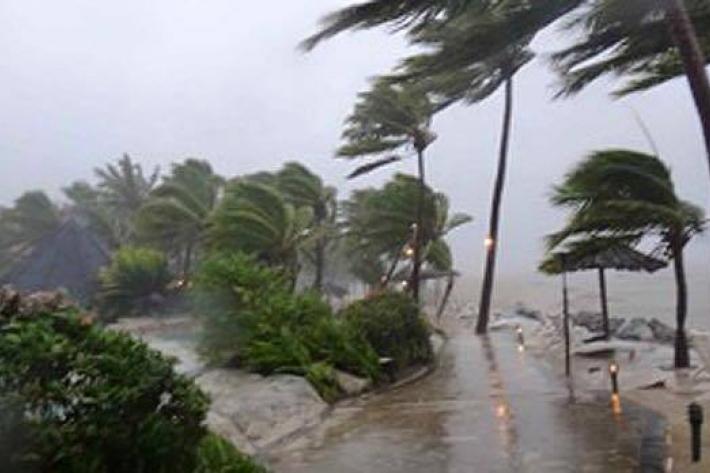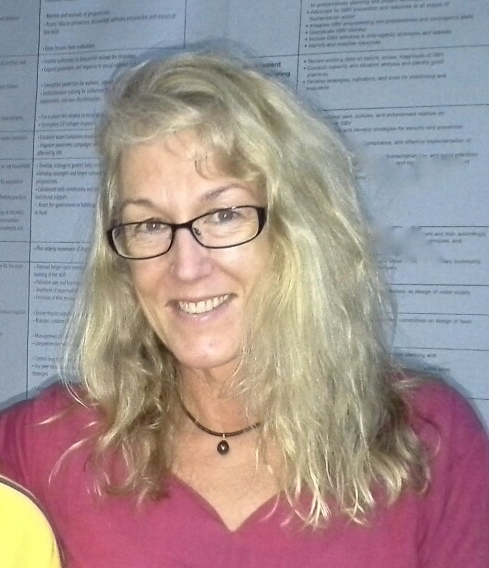Women and girls are disproportionately affected in humanitarian crises and face multiple sexual and reproductive health challenges in these contexts. IPPF has been providing much needed support to vulnerable communities through our global federation of member associations, who provide contextualised, timely and tailored interventions drawing on local partners' knowledge and expertise. However, recent shifts in the global political landscape are concerning and threaten to undermine IPPF's mission and impact on the ground.
We live in a time when crises, whether brought on by human causes or natural disaster, have displaced more people than at any point since the Second World War.
The needs of those driven from their homes are not transitory. Refugees now find themselves facing impermanent conditions for an average of 20 years. They must resort to living in temporary shelters or makeshift accommodation, and their refugee status often leaves them ineligible to access public healthcare and education.
The UN reports there are more than 125 million people worldwide in need of humanitarian assistance. Of those, a quarter are women and girls between the ages of 15 and 49. And one in five of these women and girls is likely to be pregnant.
A woman who has been forced to flee is particularly vulnerable. More than 60% of maternal deaths take place in humanitarian and fragile contexts, according to the UN Population Fund (UNFPA). At least half of these women’s lives could easily be saved. And yet women and girls affected by humanitarian crises face other risks too. A breakdown in civil order following disasters consistently increases the occurrence of sexual violence, exposure to sexually transmitted infections including HIV, and unintended pregnancies.
After the 2015 cyclone in the Pacific Island nation of Vanuatu, a counselling centre recorded a 300% spike in gender-based violence referrals. Likewise, a study with Syrian refugee women displaced by conflict found that more than 50% experienced reproductive tract infections, almost a third had experienced gender-based violence, and the majority had not sought medical care.
IPPF is at the forefront of delivering life-saving services. Our sexual and reproductive health program in crisis and post-crisis situations (SPRINT), established in 2007 and supported by the Australian Government, has ensured access to essential sexual and reproductive health services for women, men and children in times of crisis.
Under the banner of our new IPPF Humanitarian division, the SPRINT initiative is now part of a global movement that seeks to provide all those affected by crises worldwide with dignity, protection and care. As a federation of 142 locally-owned but globally connected member associations, IPPF has a unique model for providing these vital humanitarian services.
Our focus on valuing local solutions means our responses are rapid and sustainable. We see it as vital to be on the ground before, during, and after crises. Member associations work to mitigate against sexual and reproductive health (SRH) issues ahead of a crisis to reduce negative impacts, and remain afterward to assist communities to recover and rebuild their lives.
When Cyclone Winston struck Fiji in February last year, IPPF’s local member association, the Reproductive and Family Health Association of Fiji (RFHAF), was already preparing to mobilise teams of volunteers and health staff.
 Initially, sexual and reproductive health was not prioritised at a national level, thus the first challenge was to convince the Government of Fiji and lead agencies of the critical importance of including sexual and reproductive health issues in the response. With support from IPPF and SPRINT personnel, RFHAF successfully advocated with the government to include reproductive health concerns into the post-cyclone needs assessment, and supported the Government in carrying this assessment out.
Initially, sexual and reproductive health was not prioritised at a national level, thus the first challenge was to convince the Government of Fiji and lead agencies of the critical importance of including sexual and reproductive health issues in the response. With support from IPPF and SPRINT personnel, RFHAF successfully advocated with the government to include reproductive health concerns into the post-cyclone needs assessment, and supported the Government in carrying this assessment out.
Coordination and collaboration was critical as the damage was across an extensive area on several islands. Working in partnership with the Ministry of Health (MoH), UNFPA, Red Cross Society and local non-government agencies, RFHAF provided SRH care to remote areas identified as being worst hit by the cyclone. Colleagues from SPRINT and RFHAF split into three teams, moving into the field simultaneously to conduct 37 mobile medical missions to reach women and girls, with vulnerable pregnant women and new mothers prioritised.
Comprehensive follow up beyond the initial response post-cyclone was a particular challenge for an organisation of just 11 staff. To address this, RFHAF leveraged their existing partnership with the MoH to facilitate training and handover of SRH service provision to district nurses and sub-divisional health centres, once these facilities were again operational.
The response in Fiji utilised the Minimum Initial Service Package for Reproductive Health, which IPPF helped to pioneer. Commonly referred to as ‘the MISP’, the package is a series of priority life-saving interventions that IPPF seek to implement as soon as possible following a crisis.

The MISP functions as a coordinated series of priority actions to: (i) Prevent and manage the consequences of sexual violence; (ii) Reduce the transmission of HIV; (iii) Prevent maternal and infant mortality; and (iv) Plan for a return to comprehensive services as soon as the situation stabilises.
Through SPRINT, we have responded to 71 emergencies reaching almost a million clients over the last ten years. We have become experts in the implementation of the MISP across a vast array of contexts. In 2015, IPPF member associations reached 2.3 million people in crises globally.
Whilst we are immensely proud of our achievements, we’re also cognisant that our ongoing capacity to provide vital reproductive health care in humanitarian settings hinges upon continued access to essential commodities and funding.
The need to prioritise sexual and reproductive health alongside other humanitarian interventions has never been clearer, yet the changes in global politics towards more conservative agendas threaten to undermine IPPF's mission. Changes affecting the global political landscape are also having a significant impact on humanitarian assistance; not only is this assistance becoming more limited, but it is also being steered towards more traditional humanitarian priorities such as child health, nutrition, water, sanitation and hygiene. We are faced with the paradox of sexual and reproductive health issues in crises continuing to rise and become more pervasive, yet funding for this life-saving work has been directly hit due to the reintroduction of the ‘Global Gag Rule’ by the US Administration. This rule, also known as the “Mexico City Policy”, disqualifies non-US non-government organisations from receiving US global health assistance for providing abortion counselling, referrals or services, as well as prohibiting any form of advocacy related to abortion. In effect, the policy serves as a terrifying barrier for women and girls globally in being able to access health services.
In an unprecedented global climate, where conservative politics are seemingly determining the fates of women and girls in aid-recipient countries, our need for donor funding and support for our work has never been more critical. It is going to take bold leadership and sustained investment to change the course of crisis-affected women’s and girls’ lives in the coming years. The recent commitments made by governments and other donors at the She Decides conference, amounting to EUR 181m, are wholeheartedly welcomed. But given that more than 500 women and girls continue to die each day from complications related to pregnancy and childbirth in disasters, more needs to be done. IPPF will never stop fighting to ensure that women and girls in crises cannot only decide, but also thrive. We call on the global community to join us in this fight.
when
country
Fiji, Vanuatu, Syria
Blog Series
Emergency Rescue
Subject
Contraception, HIV and STIs, Comprehensive Sex Education, Gender equality, Abortion Care, Maternal Healthcare, Gynaecological, Emergencies
Related Member Association
Reproductive & Family Health Association of Fiji










